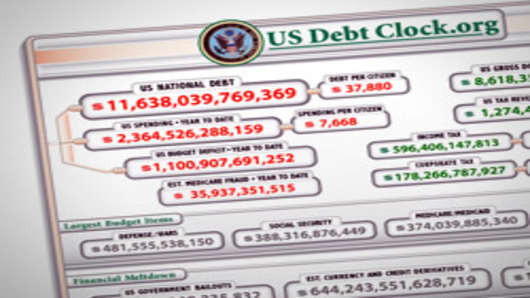The U.S. will need to eventually enact national value added tax in order to raise revenue and decrease its deficit, Paul Donovan, MD & deputy head of global economics at UBS, said Thursday.
Taxing on the consumption side has typically never been the case in the U.S.
"The United States is the only OECD without a national value-added tax. And I think they are going to have to go down that route at some point," Donovan told CNBC.
"It's a cheap way of raising money. It is a very effective way of raising money. It is not a very equitable way of raising money — it falls disproportionately on lower income groups. So you may have to make some other changes to the tax code to try and compensate for that. But that is actually going to be a good way of raising money," he said.


